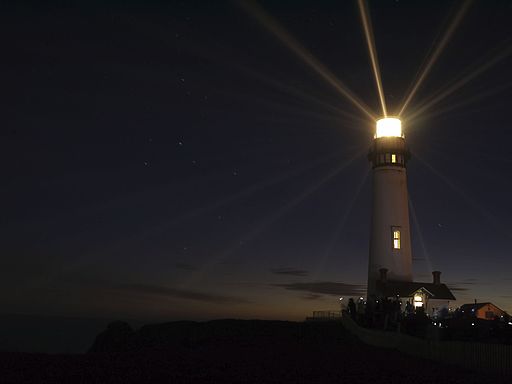Cursing the Darkness

A waitress lighting candles in a bar in Paris, France, in 2008. Photo by Jorge Royan.
The same thing applies to television service, which starts with cutting the cord without bothering to find a new cord provider. Get an antenna! Local television stations are adding digital subchannels every year, and receiving them with an antenna costs nothing. The two key things to remember in buying an antenna are that there is no such thing as a digital or high definition television antenna (an antenna is an antenna, built to receive electromagnetic frequencies regardless of whether the content of those signals is analog or digital), and that resolving digital television content requires a slightly more powerful antenna than in the old days of resolving analog content. Where a rabbit ears antenna may have done the job before, today an outdoor antenna may be necessary for adequate reception.
A nice story from the actor, Jamie Farr, about his early days struggling to make a living in Hollywood. Documentaries like this are much easier to find now on the internet than on cable television.
Some folks who are fortunate enough to have hundreds of GigaBytes of internet data available each month at a reasonable price can do away with cable or antenna television service altogether, and instead use their internet service for viewing television. Do your research! Ask questions of yourself first about what it is you watch most and can’t do without. How many different ways are there to receive that programming? Chances are there are multiple ways of receiving your favorite content, and continuing to rely solely on companies like Comcast and Charter is a disservice to yourself and a way of continuing to curse the darkness. To take documentaries – serious documentaries, that is, not Shark Week documentaries or anything involving Guy Fieri – as one example, it is obvious that cable television offerings have been replaced in the past ten years by what’s available for free on YouTube and by subscription on services such as Netflix. Don’t keep sitting in the dark – light a candle, just don’t expect it to vanquish all the shadows in your life.
— Techly 


